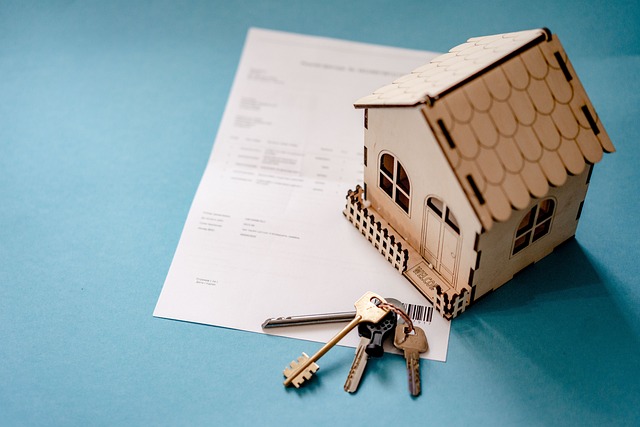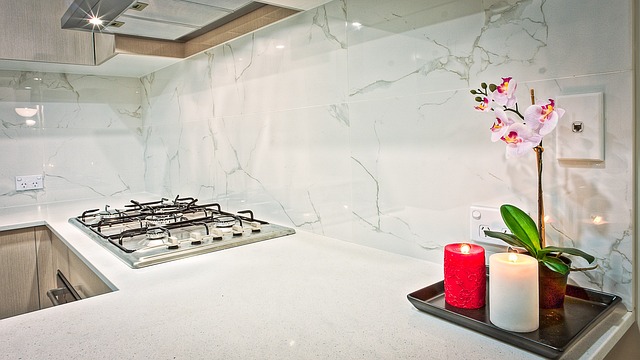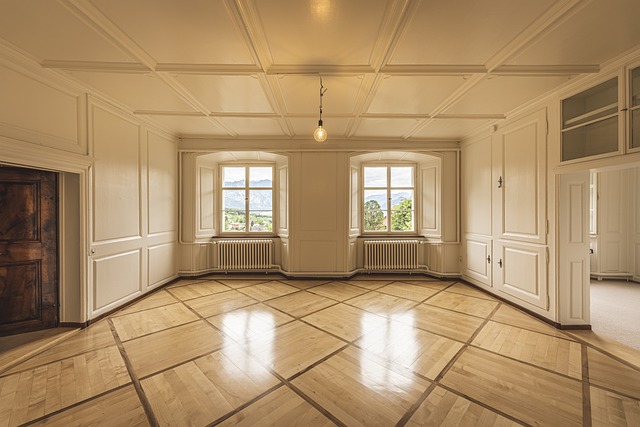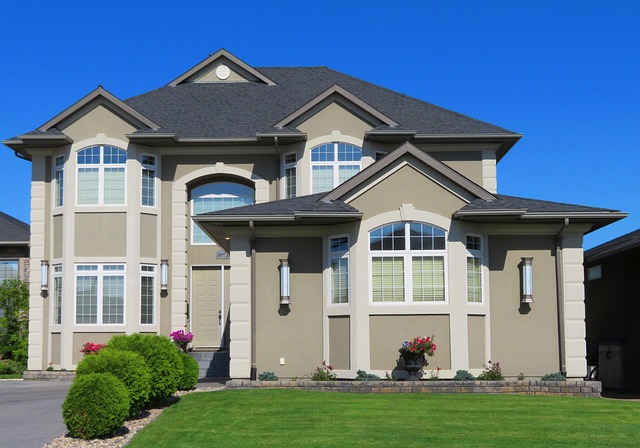An Executive Condo (EC) in Singapore serves as a transitional housing option for middle-income families, with specific considerations for those who have owned their units for over ten years. As ECs age, factors such as the remaining lease term and property maintenance responsibilities shift, influencing marketability and value. Post-decade, original mortgages mature, allowing owners to refinance under EC loan guidelines that include income and TDSR compliance. Owners must reassess their financial strategies, considering how the unit's age, the remaining lease term, and broader market dynamics affect its valuation. To ensure long-term investment viability and address mortgage affordability upon maturity, it is crucial for EC owners to monitor financial trends, explore refinancing opportunities, and maintain stable creditworthiness as they navigate the unique financial landscape of an Executive Condo After 10 Years. Understanding these dynamics is essential for informed decision-making regarding housing and investment strategies in the long term.
Navigating the nuances of owning an Executive Condo (EC) post-decade can be a complex journey, fraught with financial considerations and strategic planning. This article delves into the intricacies of EC loan guidelines, providing clarity on eligibility criteria, financing options, and the effects of loan tenure on resale value. Whether you’re considering refinancing or seeking to maintain mortgage affordability, this comprehensive guide offers valuable insights tailored for EC owners after 10 years. Understanding the legal and financial landscape will equip you with the knowledge necessary to make informed decisions regarding your Executive Condo investment.
- Understanding Executive Condos: A Decade Post-Purchase Overview
- Eligibility Criteria for Executive Condo Mortgages After 10 Years
- Financing Options for Long-Term Ownership of Executive Condos
- The Impact of Loan Tenure on Executive Condo Resale Value
- Refinancing Strategies for Executive Condos Beyond the Initial Loan Period
- Maintaining Mortgage Affordability: Tips for Executive Condo Owners After a Decade
- Legal and Financial Considerations When Holding an Executive Condo for Over 10 Years
Understanding Executive Condos: A Decade Post-Purchase Overview

An Executive Condo (EC) in Singapore is a hybrid housing type designed for Singaporean citizens and permanent residents who, due to their financial status, might otherwise qualify for a public flat but have higher income ceilings. After a decade of ownership, these properties transition from being eligible for resale to Singaporeans and permanent residents only, to becoming private condominiums that can be sold to any buyer, including foreigners. Post-purchase, the value of an Executive Condo can appreciate significantly, influenced by factors such as location, development quality, market demand, and broader economic trends. Owners considering the resale of their EC after ten years should take into account the changes in property regulations that may have occurred, as well as the evolving preferences of potential buyers. The landscape of property ownership in Singapore is dynamic, and an EC’s status and appeal can shift over time. Understanding these changes and how they impact the resale value is crucial for owners looking to capitalize on their investment a decade after purchase. Prospective buyers interested in purchasing an Executive Condo that has reached this milestone should assess the property’s condition, the remaining lease term, and any potential major renovations or upgrades needed to meet the standards of private condominiums. Key considerations include the remaining balance of the loan, the potential for rental income if the unit is not owner-occupied, and the overall growth trajectory of the area where the EC is situated.
Eligibility Criteria for Executive Condo Mortgages After 10 Years

When considering an Executive Condo (EC) loan after a decade, potential borrowers must be mindful of several evolving eligibility criteria. For instance, individuals who had previously taken an EC loan and have since repaid it in full may apply for another loan after a minimum of 30 months from the settlement of their previous loan. This five-year waiting period is a key consideration for those looking to finance an EC again. Moreover, applicants must not exceed the statutory monthly income ceiling set by the Housing & Development Board (HDB) and must meet other financial requirements, which typically include a stable income and a satisfactory credit record. Additionally, they should have a maximum of two outstanding housing loans at the time of application. The loan-to-value (LTV) ratio for an EC after 10 years may also differ from that for a first-time loan, reflecting the risk profile associated with repeat borrowers. Borrowers must work with financial institutions to understand these LTV limits and how they apply to their specific circumstances. It is important to engage with a bank or financial service provider early in the process to navigate these guidelines effectively and secure favorable terms for an EC loan after a decade.
Financing Options for Long-Term Ownership of Executive Condos

When considering long-term ownership of an Executive Condo (EC) in Singapore, understanding the financing options available is crucial for securing your investment. Prospective EC owners have several loan possibilities tailored to their unique needs. One such option is the Standard Chartered Bank’s EC Loan, designed specifically for EC buyers after 10 years when the property ceases to be an EC and becomes a regular condo. This loan is structured to cater to the owner’s financial situation post-maturity of the initial mortgage, allowing for continued ownership without the necessity of full repayment or refinancing.
Another financing option for long-term ownership is the remortgaging of the property after fulfilling the minimum occupation period (MOP) of 5 years. During this period, owners can explore remortgage plans from financial institutions that offer competitive rates and flexible repayment terms. The HDB’s Remin loan scheme, available for ECs after 10 years when they are treated as flats, is another viable option. This government-backed loan provides a lifeline for those looking to own their ECs beyond the initial 25 or 30-year mortgage period without having to make a lump sum repayment at once. Both options reflect the adaptability of financial products to support residents in their long-term housing aspirations within the guidelines set by the Singapore government for Executive Condos.
The Impact of Loan Tenure on Executive Condo Resale Value

When considering the resale value of an Executive Condo (EC) after a decade, the tenure of the loan is a critical factor to evaluate. Generally, the loan tenure for ECs can span up to 25 or 30 years, depending on the housing policies and individual financial arrangements at the time of purchase. A longer loan tenure often translates to lower monthly instalment payments, which can be appealing to buyers initially. However, it’s important to consider how this approach affects the resale value. An EC that has been financed over a longer period may attract a smaller pool of potential buyers due to the higher remaining lease balance at the time of sale, as the value of an EC is partly tied to the number of years left on the 99-year lease. Conversely, an EC purchased with a shorter loan tenure will have a larger proportion of its lease remaining, which may enhance its appeal and potentially command a higher resale price when the time comes. This is particularly relevant for ECs after 10 years, as the property would have aged, and its marketability could be influenced by the remaining lease term. Prospective buyers will typically value properties with longer remaining lease terms, as this reduces their risk and aligns with their preferred investment horizon. Therefore, when evaluating the impact of loan tenure on resale value, it’s crucial for EC owners to weigh the benefits of lower monthly payments against the long-term implications on their asset’s marketability and potential resale price.
Refinancing Strategies for Executive Condos Beyond the Initial Loan Period

When an owner of an Executive Condo (EC) reaches the end of their initial loan period, typically after 25 years or when the unit’s owner is above the age of 55, refinancing becomes a strategic consideration to manage mortgage obligations effectively. Refinancing an EC after 10 years can offer several benefits, such as securing a more competitive interest rate, extending the loan tenure to reduce monthly payments, or even accessing equity tied up in the property.
Homeowners looking to refinance their EC post-initial loan period should assess their financial situation and market conditions. It’s prudent to consider the remaining lease term and the age of the flat, as these factors influence the available loan options. Owners with an EC that is less than 20 years old may find it advantageous to opt for a shorter loan tenure to avoid the Total Debt Serviceratio (TDSR) limit that applies beyond 35 years. Alternatively, extending the loan period can lower monthly payments but may result in higher overall interest costs. The decision to refinance should be based on a balanced evaluation of immediate cash flow needs and long-term financial planning. Owners should engage with multiple financial institutions to compare rates and terms, ensuring they align with their financial goals for the EC after 10 years.
Maintaining Mortgage Affordability: Tips for Executive Condo Owners After a Decade

When an Executive Condo (EC) reaches the ten-year mark, its financing landscape can shift significantly for owners looking to maintain mortgage affordability. As the loan matures, property values may appreciate, potentially triggering a need for revaluation and reassessment of the mortgage’s terms. To ensure that your EC remains financially manageable after a decade, it is prudent to anticipate these changes early on.
One key strategy for Executive Condo After 10 Years affordability is to keep abreast of financial market trends. Interest rates can fluctuate over time, and being prepared for rate adjustments will help you plan your finances accordingly. Another tip is to make extra payments towards the principal amount when possible, which can reduce the loan tenure and lower the total interest paid. Additionally, owners should consider refinancing options that may offer more competitive rates or better terms, especially if the EC’s value has increased significantly. It’s also advisable to maintain a stable income and improve your credit score, as these factors will influence your eligibility for favorable loan conditions. By proactively managing these aspects, Executive Condo After 10 Years ownership can continue to be an economically sound investment.
Legal and Financial Considerations When Holding an Executive Condo for Over 10 Years

An Executive Condo (EC) is a unique housing type in Singapore, designed for middle-income families. After a decade of ownership, holders face distinct legal and financial considerations that differentiate its longevity from other residential property types. Legally, the lease for an EC is typically 99 years, similar to HDB flats, which means that after ten years, owners are no longer in the initial lease term but rather in the second phase where maintenance and sinking fund requirements become their responsibility. This transition also affects the marketability of the unit as the remaining lease becomes less attractive to future buyers.
Financially, holding an EC for over ten years involves assessing the property’s value in the context of its aging profile. Owners must consider the potential increase or decrease in property value due to factors such as changes in market conditions, the age of the unit, and the remaining lease term. Additionally, when the mortgage is nearing maturity, owners have options to refinance their EC loan under the existing EC loan guidelines, which include income ceilings and total debt servicing ratio (TDSR) regulations. It’s crucial for owners to review their financial plans, as they may need to adjust their strategies to manage the remaining loan tenure and prepare for the eventual lease expiry or potential sale of the unit. Understanding these considerations is key for EC owners looking to make informed decisions about their long-term housing and investment plans.
navigating the complexities of owning an Executive Condo post-decade mark requires a comprehensive understanding of the associated loan guidelines. This article has shed light on various facets, from eligibility for mortgage renewals to strategies for refinancing and maintaining affordability over the long term. For those who have held an Executive Condo for over 10 years, it’s clear that staying informed about the evolving financial landscape is key to maximizing resale value and managing costs effectively. By carefully considering the outlined guidelines and utilizing the provided tips, Executive Condo owners can make prudent decisions that align with their financial goals and ensure their investment remains a sound one. As you reflect on the nuances of Executive Condo After 10 Years ownership, it’s evident that with the right approach and planning, these properties continue to offer valuable long-term opportunities.
